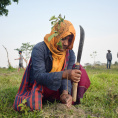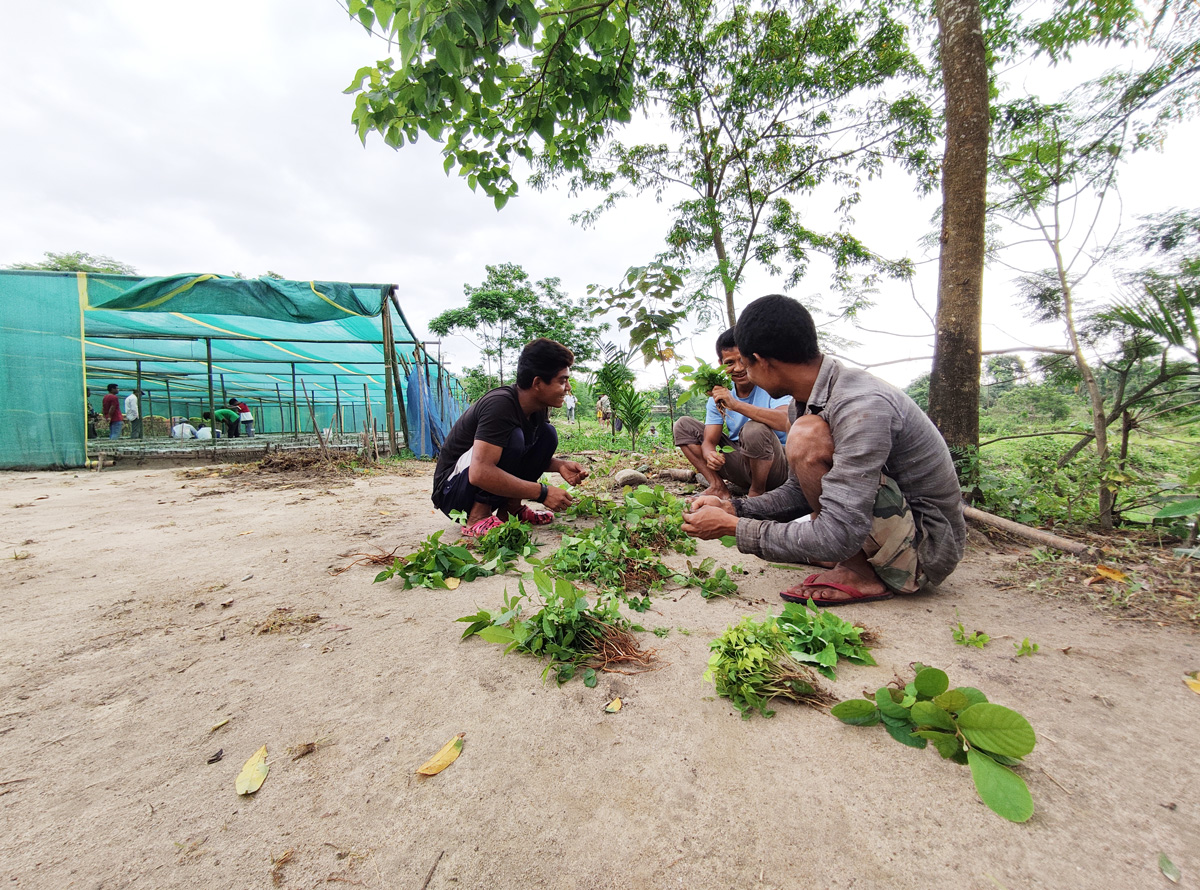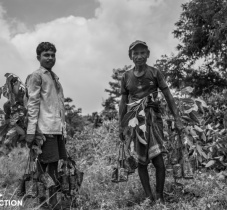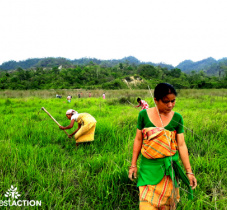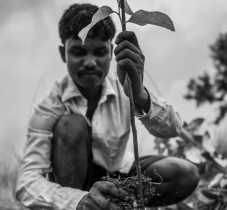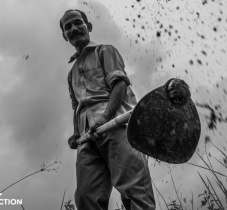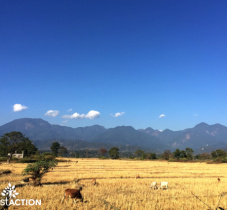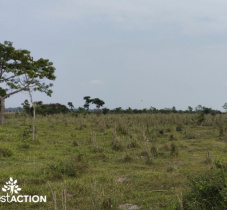Project description
Help restore forests in the eastern Himalayan state of Assam and develop agroforestry to provide local communities with more sustainable agricultural solutions.
The project at a glance
Number of trees to be planted : 1 000 000
Species planted : albizia, cinnamon tree, teck, ficus, gmelina, garcinia, lychee, mango tree, santal, vibrunum, etc.
Type of project : restoration of degraded forests and agroforestry
Planting period : entre février et juin
Context
The living lab project India is developed within the framework of the Circular Bioeconomy Alliance established by His Royal Highness The Prince of Wales under his Sustainable Markets Initiative. The CBA aims at catalysing investments for creating resilient landscapes and sustainable markets powered by Nature.
The Indian state of Assam is located in the eastern tip of India, between Bhutan, China and Bangladesh. Since 2000, this region of the eastern Himalayas has lost more than 9.5% of its vegetation cover, due to the increasing conversion of natural primary forests to agricultural plots, and the invasion of exotic species that thrive at the expense of native vegetation. The result is a decline in the health of natural ecosystems, which can be seen in terms of soil degradation, increasing land desertification, and the depletion of water tables. Faced with a degraded environment, local populations are confronted with decreasing agricultural yields, which goes hand in hand with the collapse of their food security in the state of Assam, only 8% of young people between the ages of 6 and 23 benefit from a healthy and balanced diet.
Actions on the ground
RESTORING FORESTS
Using the Rural Futures model established by Balipara to generate income through community forest restoration, multiple species of endemic trees are planted in deforested areas to regenerate the soil and restore the forest cover that populated them only a few decades ago, including ficus, ramontchi, Indian mulberry and ashoka.
DEVELOP AGROFORESTRY
Balipara Foundation and Pretaterra train local farmers to include trees as an integral component of their agriculture through the creation of agroforestry systems. A variety of fruit species, including moringa, lemon and mango, are planted in agroforestry on farmers’ plots to protect the underlying crops and provide local people with additional income from the sale of their fruits and seeds.
Fast-growing species, such as black myrobolan, are also planted in agroforestry in order to provide communities with a sustainably managed wood resource and to avoid cutting down existing forests or forests restored under the project.
Our partners
Founded in 2007, Balipara Foundation is an Indian initiative that initially focused on the conservation of Asian elephants across India. After several years of achievements, their expertise in the field allowed them to establish the link between saving elephants and the preservation of their natural environment the forests. This led to the creation of the Rural Futures model for restoring forests while creating community incomes. Since the creation of Balipara, more than 2000 hectares of forest have been restored. In parallel to these reforestation programs, Balipara has been developing agroforestry projects for local communities for the past 5 years, to combine trees and cash crops and thus enable them to generate additional income.
Pretaterra is a Brazilian NGO specialized in agroforestry. With the objective of combining food production with forest regeneration, Pretaterra aims at a complex and biodiverse production system that reproduces the natural processes of tropical forests. The NGO is providing all its expertise to Balipara Foundation for the agroforestry component of the project.




